Microbes are everywhere, often forming complex and dynamic communities that are responsible for the health of humans, animals, plants, and natural ecosystems. Increasingly, we recognise that microbial evolution plays a fundamentally important role in these processes. The global crisis of antimicrobial resistance is driven by microbial adaptation to antibiotic use, while microbial responses to environmental changes will profoundly impact key biogeochemical cycles in soils and oceans. Formulating solutions to these and other emerging issues demands a deep understanding of the evolutionary dynamics of microbes and microbial communities, to enable us to anticipate their reactions to selective pressures and to develop effective, resilient biotechnological solutions.
This meeting will strengthen collaborative ties between researchers working across the diverse field of microbial evolution, in the UK and overseas. There will be invited talks on a range of topics including drivers and dynamics of (pan)genome evolution, microbiome evolution, predicting microbial evolution, and the applications of microbial evolution. In addition, the meeting will provide opportunities for early career researchers to present their work in the form of contributed talks and poster presentations and to build their collaborative networks.
This meeting is the sequel to Understanding and Predicting Microbial Evolutionary Dynamics 2022.
Organising committee:
- Michael Brockhurst (University of Manchester, UK)
- Jenna Gallie (Max Planck Institute for Evolutionary Biology, Germany)
- James Hall (University of Liverpool, UK)
- Stineke Van Houte (University of Exeter, UK)
Key topics
- Drivers and dynamics of microbial evolution
- Evolution of (pan)genomes
- Evolution of microbial communities
- Predicting microbial evolution
- Applications of microbial evolution
Further information will be announced in the build-up to the meeting on our social media channels. Follow us on Twitter @MicrobioSoc and Bluesky @microbiologysociety.org using the hashtag #MicroEvo25. We will also be sharing stories on Instagram @MicrobioSoc throughout the event.
Wednesday 26 November, Morning
Drivers and dynamics of genome evolution
-
Plasmid evolution: a (copy) numbers game
-
Invited Speaker
-
Offered Talk
-
Offered Talk: The evolution of gut colonisation strategies of widespread high-risk E. coli clones
-
Offered Talk
-
Offered Talk: Inflammation-like environments limit the loss of quorum sensing in Pseudomonas aeruginosa: Evolutionary insights from host-mimicking experiments
-
Break
-
Break
-
Invited Speaker: Plasmids and cancer: insights into the evolutionary roles of extrachromosomal DNA
-
Invited Speaker
-
Offered Talk: Dissecting pOXA-48 fitness effects in clinical Enterobacterales using plasmid-wide CRISPRi screens
-
Offered Talk
-
Offered Talk: The role of anti-phage defence systems in shaping the genomes of temperate phages
-
Offered Talk
Wednesday 26 November, Afternoon
Drivers and dynamics of evolution in microbial communities
-
Invited Speaker: Vancomycin-resistant enterococci colonise the antibiotic-treated intestine by occupying overlapping but distinct nutrient- and metabolite-defined intestinal niches
-
Invited Speaker
-
Offered Talk: Donor-dependent Escherichia coli invasion dynamics across Human gut microbiotas using an in vitro gut simulator
-
Offered Talk
-
Offered Talk
-
Offered Talk: Evolutionary tradeoffs in facultative symbiosis; reciprocal effects of phage predation and nodulation on rhizobia
-
Refreshments, networking and poster viewing
-
Refreshments, networking and poster viewing
-
Invited Speaker: Evolutionary Trajectories Are Largely Independent of Community Context in Microbial Cocultures
-
Invited Speaker
-
Offered Talk: Evolution induced state shifts revealed by a long term microbial community experiment
-
Offered Talk
-
Offered Talk
-
Offered Talk: Arbitrium phages can manipulate each other’s lysis - lysogeny decisions
Thursday 27 November, Morning
Predicting microbial evolution
-
Invited Speaker
-
Chair(s): Epidemiology
-
Invited Speaker: Epidemiology
-
Invited Speaker: Antibiotic use drives AMR… right? Rethinking the importance of selection in the real world
-
Offered Talk
-
Offered Talk: Long-range sequence context shapes mutational bias in Escherichia coli
-
Offered Talk: Long-range sequence context shapes mutational bias in Escherichia coli
-
Offered Talk: Using Genome-Scale Metabolic models to predict community coexistence, stability and resource use
-
Offered Talk
-
Offered Talk: Using Genome-Scale Metabolic models to predict community coexistence, stability and resource use
-
Refreshments, networking and poster viewing
-
Refreshments, networking and poster viewing
-
Refreshments, networking and poster viewing
-
Invited Speaker
-
Invited Speaker: Predictable effects of environmental stress on microbial communities
-
Invited Speaker: Plasmids modelling / epidemiology
-
Offered Talk: Increased plasmid copy number reduces establishment probability of beneficial mutations
-
Offered Talk
-
Offered Talk: Increased plasmid copy number reduces establishment probability of beneficial mutations
-
Offered Talk
-
Offered Talk: From noise to novelty: Selecting de novo genes from random sequence in E. coli
-
Offered Talk: From noise to novelty: Selecting de novo genes from random sequence in E. coli
Thursday 27 November, Afternoon
Applications of microbial evolution
-
Invited Speaker
-
Invited Speaker
-
Invited Speaker: Within-patient evolution of ciprofloxacin resistance in Pseudomonas aeruginosa across a large-scale clinical trial
-
Offered Talk: Phage-steering of bacterial evolution permits antibody-mediated clearance of Escherichia coli K1 from the gut
-
Offered Talk: Phage-steering of bacterial evolution permits antibody-mediated clearance of Escherichia coli K1 from the gut
-
Offered Talk
-
Offered Talk
-
Offered Talk: Exploring community and plasmid dynamics in the hospital sink drain microbiome
-
Offered Talk: Exploring community and plasmid dynamics in the hospital sink drain microbiome
-
Break
-
Break
-
Break
-
Invited Speaker
-
Invited Speaker
-
Invited Speaker: Harnessing growth-coupling and evolutionary engineering to establish novel chemistries in bacteria
-
Offered Talk: Molecular Drivers of Within-Host AMR Evolution in Pseudomonas aeruginosa
-
Offered Talk: Molecular Drivers of Within-Host AMR Evolution in Pseudomonas aeruginosa
-
Offered Talk
Wednesday 26 November
-
Registration
-
Welcome Talk
-
EC Forum Introduction
-
Plasmid evolution: a (copy) numbers game
-
Invited Speaker
-
Offered Talk
-
Offered Talk: The evolution of gut colonisation strategies of widespread high-risk E. coli clones
-
Offered Talk
-
Offered Talk: Inflammation-like environments limit the loss of quorum sensing in Pseudomonas aeruginosa: Evolutionary insights from host-mimicking experiments
-
Break
-
Break
-
Invited Speaker: Plasmids and cancer: insights into the evolutionary roles of extrachromosomal DNA
-
Invited Speaker
-
Offered Talk: Dissecting pOXA-48 fitness effects in clinical Enterobacterales using plasmid-wide CRISPRi screens
-
Offered Talk
-
Offered Talk: The role of anti-phage defence systems in shaping the genomes of temperate phages
-
Offered Talk
-
Lunch, networking and poster viewing
-
Poster Session
-
Invited Speaker: Vancomycin-resistant enterococci colonise the antibiotic-treated intestine by occupying overlapping but distinct nutrient- and metabolite-defined intestinal niches
-
Invited Speaker
-
Offered Talk: Donor-dependent Escherichia coli invasion dynamics across Human gut microbiotas using an in vitro gut simulator
-
Offered Talk
-
Offered Talk
-
Offered Talk: Evolutionary tradeoffs in facultative symbiosis; reciprocal effects of phage predation and nodulation on rhizobia
-
Refreshments, networking and poster viewing
-
Refreshments, networking and poster viewing
-
Invited Speaker: Evolutionary Trajectories Are Largely Independent of Community Context in Microbial Cocultures
-
Invited Speaker
-
Offered Talk: Evolution induced state shifts revealed by a long term microbial community experiment
-
Offered Talk
-
Offered Talk
-
Offered Talk: Arbitrium phages can manipulate each other’s lysis - lysogeny decisions
-
Drinks Reception
-
Drinks Reception
-
Meeting Dinner
-
Meeting Dinner
Thursday 27 November
-
Invited Speaker
-
Invited Speaker: Epidemiology
-
Invited Speaker: Antibiotic use drives AMR… right? Rethinking the importance of selection in the real world
-
Offered Talk
-
Offered Talk: Long-range sequence context shapes mutational bias in Escherichia coli
-
Offered Talk: Long-range sequence context shapes mutational bias in Escherichia coli
-
Offered Talk: Using Genome-Scale Metabolic models to predict community coexistence, stability and resource use
-
Offered Talk
-
Offered Talk: Using Genome-Scale Metabolic models to predict community coexistence, stability and resource use
-
Refreshments, networking and poster viewing
-
Refreshments, networking and poster viewing
-
Refreshments, networking and poster viewing
-
Invited Speaker
-
Invited Speaker: Predictable effects of environmental stress on microbial communities
-
Invited Speaker: Plasmids modelling / epidemiology
-
Offered Talk: Increased plasmid copy number reduces establishment probability of beneficial mutations
-
Offered Talk
-
Offered Talk: Increased plasmid copy number reduces establishment probability of beneficial mutations
-
Offered Talk
-
Offered Talk: From noise to novelty: Selecting de novo genes from random sequence in E. coli
-
Offered Talk: From noise to novelty: Selecting de novo genes from random sequence in E. coli
-
Lunch, networking and poster viewing
-
Invited Speaker
-
Invited Speaker
-
Invited Speaker: Within-patient evolution of ciprofloxacin resistance in Pseudomonas aeruginosa across a large-scale clinical trial
-
Offered Talk: Phage-steering of bacterial evolution permits antibody-mediated clearance of Escherichia coli K1 from the gut
-
Offered Talk: Phage-steering of bacterial evolution permits antibody-mediated clearance of Escherichia coli K1 from the gut
-
Offered Talk
-
Offered Talk
-
Offered Talk: Exploring community and plasmid dynamics in the hospital sink drain microbiome
-
Offered Talk: Exploring community and plasmid dynamics in the hospital sink drain microbiome
-
Break
-
Break
-
Break
-
Invited Speaker
-
Invited Speaker
-
Invited Speaker: Harnessing growth-coupling and evolutionary engineering to establish novel chemistries in bacteria
-
Offered Talk: Molecular Drivers of Within-Host AMR Evolution in Pseudomonas aeruginosa
-
Offered Talk: Molecular Drivers of Within-Host AMR Evolution in Pseudomonas aeruginosa
-
Offered Talk
-
Closing of talks and presentation of poster prize
The programme of invited keynote speakers for the meeting includes:
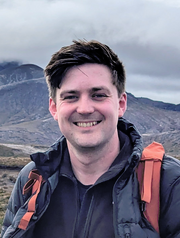
Dr. Matthew Shepherd (University of Manchester, UK)
Dr. Matthew Shepherd is a postdoctoral researcher in the group of Prof. Michael Brockhurst at the University of Manchester. Matt completed his PhD at the University of Bath in 2022, and has previously worked at UKHSA Porton Down. Matt's research has covered bacterial molecular genetics and regulatory network evolution, biocide resistance evolution, and currently focuses on understanding and predicting the within-patient evolution of antimicrobial resistance.
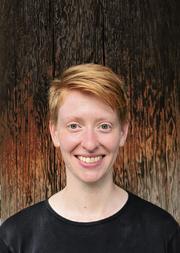
Dr Jana Huisman (Massachusetts Institute of Technology, USA)
Dr. Jana Huisman is a HFSP postdoctoral fellow at MIT. She studies the interrelated dynamics of mobile genetic elements and complex microbial communities, using a combination of laboratory experiments, mathematical modelling, and bioinformatics. Originally from the Netherlands, Jana was trained as a physicist at the University of Bonn (DE) and the Technical University of Denmark (DK). She earned her PhD at ETH Zurich in 2021, where she studied the ecology and evolution of antibiotic resistance plasmids and helped inform the public health response to the COVID-19 pandemic in Switzerland.
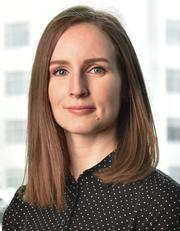
Dr Julie McDonald (Imperial College London, UK)
Dr Julie McDonald is an Associate Professor in the Department of Life Sciences and a Group Leader in the Centre for Bacterial Resistance Biology at Imperial College London. Her research investigates how the healthy gut microbiome protects the host against intestinal colonisation with antimicrobial-resistant (AMR) pathogens, and how antibiotics disrupt the gut microbiome to promote AMR pathogen growth. Her group is interested in several multidrug-resistant pathogens, including vancomycin-resistant enterococci, carbapenem-resistant Enterobacteriaceae, and carbapenem-resistant Pseudomonas aeruginosa.
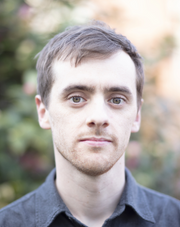
Liam Shaw (University of Bristol, UK)
Liam Shaw is a computational biologist based at the University of Bristol. His research focuses on the evolution and spread of antibiotic resistance.
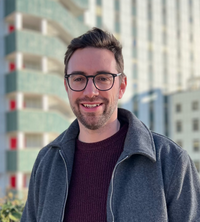
Dr Jerónimo Rodríguez Beltrán (Evodynamics lab, Spain)
Dr. Jerónimo Rodríguez-Beltrán (Jero) is a microbiologist specializing in the evolution of antibiotic resistance. He earned his PhD at CNB-CSIC (Madrid), where he studied how antibiotics trigger genetic responses that enhance bacterial adaptation. During his postdoctoral research at IRYCIS (Madrid), he focused on plasmids, uncovering that their evolutionary impact goes beyond mere gene transfer.
In 2021, he founded the evodynamics lab (www.evodynamicslab.com), where his team combines synthetic biology and evolutionary insights to investigate how multidrug-resistant pathogens evolve and spread. Their research focuses on predicting and preventing the rise of resistant clones, laying the groundwork for personalized therapeutic strategies.
Jero has published in leading scientific journals, secured competitive funding—including an ERC Starting Grant—and collaborated with top researchers worldwide. His contributions have earned him prestigious awards, including the Karin Ippen-Ihler Memorial Prize and the Premio Nacional de Investigación "Margarita Salas", Spain’s highest honor for young scientists.
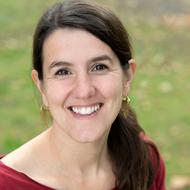
Prof Gwen Knight (AMR Centre at the London School of Hygiene and Tropical Medicine, UK)
Gwen Knight is a Professor and Co-Director of the AMR Centre at the London School of Hygiene and Tropical Medicine. Her research uses mathematical modelling and data analysis to explore the dynamics of antimicrobial resistance (AMR). She is currently funded by a UK MRC fellowship to understand how AMR prevalence varies by age and sex.
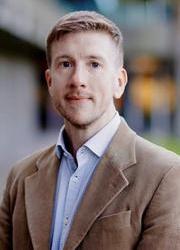
Prof Pablo I. Nikel (DTU Biosustain, Kgs Lyngby, Denmark)
Pablo I. Nikel earned a Ph.D. in Biotechnology and Molecular Biology in Buenos Aires, Argentina. During graduate school, his research focused on engineering Escherichia coli to produce biopolymers and biofuels. After working in USA (Rice University, supported by the ASM), Pablo moved to Europe as a post-doctoral fellow funded by the European Molecular Biology Organization (EMBO) and the Marie Skłodowska-Curie Actions (MSCA) of the European Commission. Inspired by the unique possibilities that environmental bacteria offer for bioengineering, he is now leading the Systems Environmental Microbiology Group (www.sem-cfb.com) at DTU Biosustain. Pablo’s team aims at rewriting the core bacterial biochemistry through synthetic metabolism for the biosynthesis of novel compounds with a focus on new-to-nature fine chemicals. The ambition of this research programme is expanding the very limits of microbial biochemistry—granting access to compounds that, as of today, are exclusively produced via traditional chemistry nowadays. Pablo, a Full Professor at DTU, received the Ascending Investigator and Distinguished Innovator awards from the Novo Nordisk Foundation, and he is a top-tier cited scientists in the Nordic Ranking. Among other obligations, he is Editor-in-Chief of Current Opinion in Biotechnology and editor for five other journals, and a cofounder of BioHalo, a spin-out company from his laboratory pursuing bioproduction of fluorochemicals.
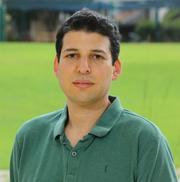
Jonathan Friedman (Hebrew University of Jerusalem, Jerusalem)
Jonathan Friedman is an Associate Professor at the Institute of Environmental Sciences at the Hebrew University of Jerusalem. His research focuses on the evolution of microbial communities, exploring how ecological interactions shape evolutionary dynamics and how evolution feeds back to alter community structure and function.
Registration for Understanding and predicting microbial evolutionary dynamics 2025 is now closed.
Registration fees
|
£275 |
|
|
£370 |
|
|
£425 |
|
|
Non-member |
£530 |
Microbiology Society members get heavily subsidised registration fees for Annual Conference, Focused Meetings and other Society events – both online and in-person. Join now to enjoy these discounts and many other opportunities that are designed for microbiologists at all stages of their careers.
All speakers and poster presenters will be attending in person.
Registration confirmation
Upon registration, you should receive an automated confirmation email. Please contact [email protected] if, after 24 hours, this has not been received.
Payment information
All registration fees must be paid in full BEFORE arrival at the conference. Any outstanding registration fees must be paid before admittance will be granted to the conference.
Cancellations
Refunds are not provided. However, substitutions of attendees can be made at any time before the event by contacting [email protected].
Abstract submission for Understanding and predicting microbial evolutionary dynamics 2025 is now closed.
Abstract Booklets
Abstract Guidance
Abstracts must be a maximum of 250 words. The Society has produced a guide to give delegates some tips on how to write a great abstract, which can be downloaded below:
Please note that the abstract is the only information session organisers use when deciding whether to accept your work for presentation as an offered oral or poster. If accepted, it will also be published in the abstract book for the meeting—so think carefully about what needs to be included.
The conference will take place at the Hilton Liverpool City Centre.
Hilton Liverpool City Centre is located at 3 Thomas Steers Way, Liverpool L1 8LW.
The property is located in Liverpool City Centre within a 10-minute walk of the Royal Albert Dock, The Beatles Story, and Liverpool ONE.
To support you in securing your accommodation, we provide links to our booking and accommodation services via First Choice.
First Choice has secured negotiated rates at hotels to suit a broad range of budgets.
If you require any further information for personal or group hotel bookings, please email [email protected] at any time.
Directions
Car Parking
The Hilton Liverpool City Centre has on-site parking. More information can be found on their website.
- Self-parking: £25.00 per day
- Valet parking: £45.00
- EV charging: Nearby, 2 kilometers
- Secured: Available
- Covered: Available
- In/Out privileges: Available
By Airport shuttle
- Liverpool John Lennon Airport: Not available
- Manchester International Airport: Not available
https://www.hilton.com/en/hotels/lplhihi-hilton-liverpool-city-centre/hotel-info/
By train:
James Street train station is within a 6-minute walking distance of the Hilton Liverpool City Centre.
Lime Street Train Station | Liverpool Rail House is within a 14-minute walking distance from the Hilton Liverpool City Centre.
By bus:
Liverpool One bus station is within a 2-minute walking distance from the Hilton Liverpool City Centre.
Accessibility across the venue
Accessible toilets are signposted as gender neutral and available for anyone requiring gender neutral facilities to use. We collect pronoun information during registration and all name badges either have pronouns printed on them, or a space to add these, should you wish to. Please do respect other delegates personal pronouns.
We will have sunflower lanyards available for attendees with hidden disabilities. If you would like one of these lanyards, please ask at the registration desk at any time during the Conference. Stocks will be limited, so please only request one if you consider yourself to have a hidden disability.
Please ensure you include your accessibility requirements during registration so that we can provide you with further details if applicable.
Applications for the Society Events Grant to support members attending Understanding and predicting microbial evolutionary dynamics 2025 will open on 1 September 2025 and close on 15 September 2025 at 23:59 BST.
Grants will act as a contribution towards registration, travel, and accommodation expenses only.
Eligibility requirements:
Eligible membership categories:
- Full Member
- Full Concessionary Member
- Postgraduate Student Members
- Undergraduate Student Members
Minimum membership period required:
A minimum membership period of one year and two consecutive membership payments is required. Postgraduate and Undergraduate with three-year memberships will need to have completed one year (three-year membership payment constitutes consecutive payment).
Please read all information carefully on the Society Events Grant page before submitting an application for funding.
FEMS Meeting Attendance Grants
Members of the Microbiology Society can apply for a FEMS Meeting Attendance grant. The grant enables early career researchers to attend microbiology meetings worldwide to network, collaborate and keep abreast of new developments in their field. Support is limited to a maximum of € 750.
Eligibility:
Applicants should be active microbiologists, having obtained their highest degree less than five years prior to the application deadline date, or be a PhD student*. They should be a member of the Microbiology Society and a presenting author (oral or poster) at the meeting.
*Periods of maternity/paternity leave, special leave or illness do not count toward this definition
Complete applications should be submitted on or before 1 September 2025, 23:59 CET.
Accredited by the Royal Biology Society<https://www.rsb.org.uk/events.html> (RSB) for 54 CPD points and approved by the Royal College of Pathologists<https://www.rcpath.org/event/understanding-and-predicting-microbial-evolutionary-dynamics-2025.html> (RCPath) for 15 CPD points.
Sponsorship opportunities are available for this two day conference.
Please download our exhibitor and sponsor pack to view our options. If you have any questions about the packages, please email [email protected].
